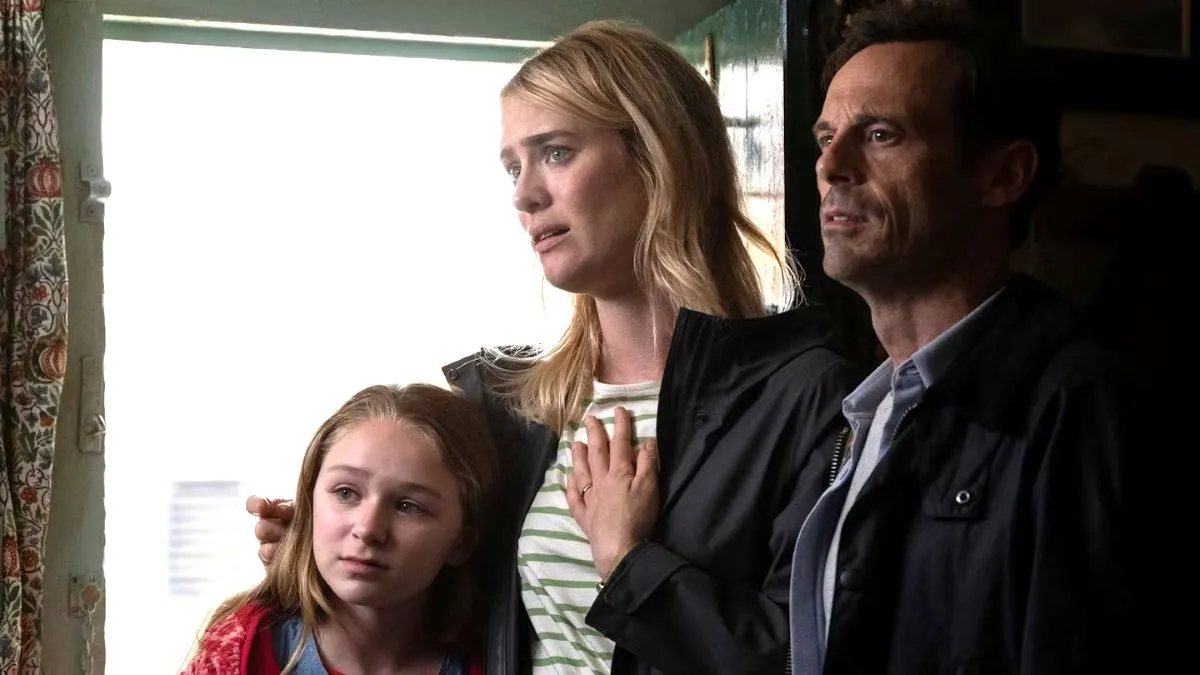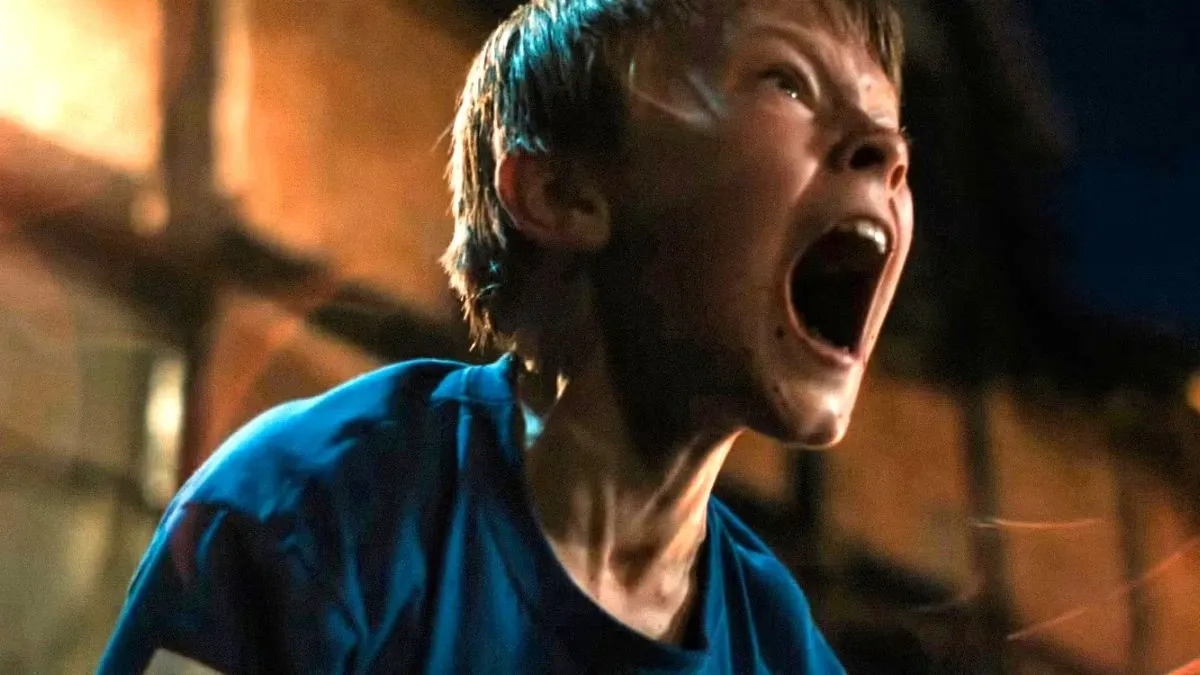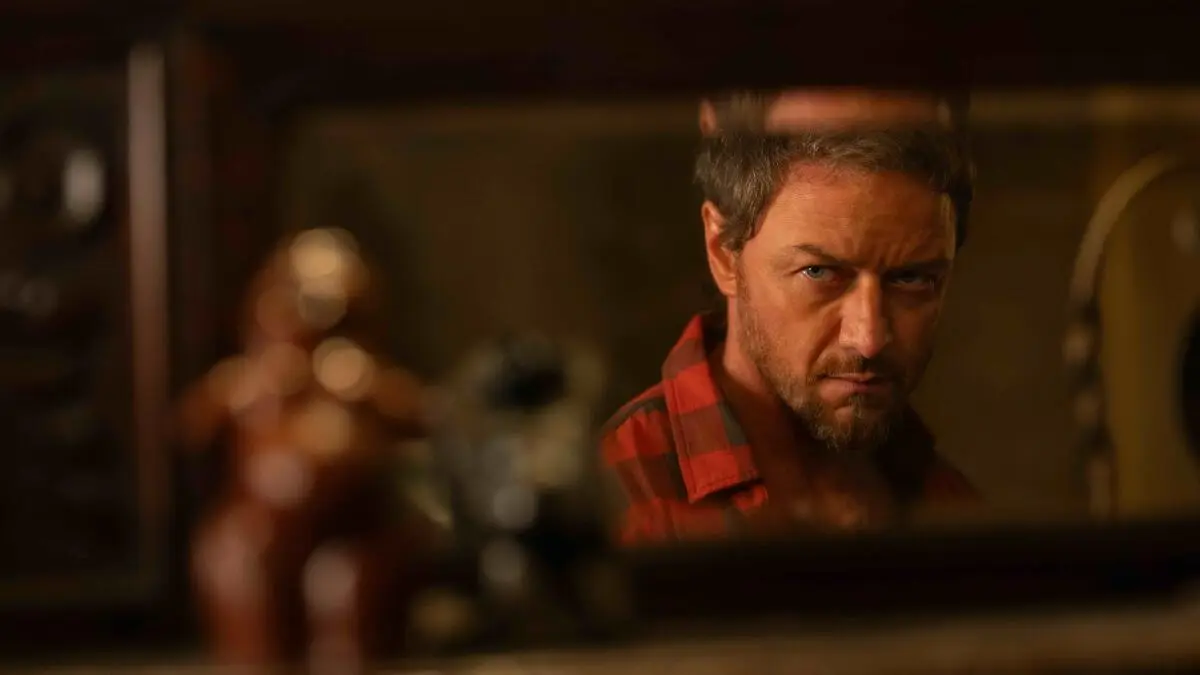Most people who see Speak No Evil likely won’t be aware that this is a remake of the 2022 Danish film of the same name, but those who are may let out the same intonated groan that we’ve all heard so many times before. Why does Hollywood insist on Americanizing very recent foreign films when they could just play those foreign films in North American cinemas?
There’s little use in getting hung up on the why. Hollywood doesn’t do that, and that’s all there is to it. With that said, what better way to potentially get such foreign films on the public’s radar than by cooking up a remake that Hollywood actually will sign off on for mass release, all while seeing how many of your own herbs and spices you can add to the premise along the way?
Whether or not this was the goal for Blumhouse (a production company whose last five films were sorely goalless) is anyone’s guess, but Speak No Evil — with its valuable albeit unwieldy themes and some unnervingly naturalized pizzazz from James McAvoy — certainly succeeds as a rock-solid thriller that could wise up more curious crowds to its Danish ancestor. As a piece of art, that counts for quite a bit.
The film stars Mackenzie Davis as Louise Dalton, a wife to Ben (Scoot McNairy) and mother to Agnes (Alix West Lefler), who joins her family on a vacation to Italy, where they befriend a British family consisting of Paddy (McAvoy), his wife Ciara (Aisling Franciosi), and their mute son Ant (Dan Hough). Paddy’s mischievousness takes some getting used to, but the Daltons ultimately chum up to him and his family, and accept an invitation to visit them at their countryside estate. It’s a breath of fresh air at first, but as limits are tested and boundaries are broken, the Dalton’s vacation unfurls into an unthinkably nasty revelation.

As though this even needs to be said at this point, there’s no evil to be spoken about McAvoy’s leading role as the curiously-characterized Paddy. No switch ever gets flipped in Paddy; he never truly makes an effort to hide any of his shades, and his aggression being unable to exist without his friendliness (and vice-versa) is non-negotiable from a storytelling perspective.
As such, the Scotsman was tasked with wearing a multitude of masks all at the same time, and simultaneously wear no mask at all, and it’s a challenge that McAvoy not only rises to, but spins to his advantage in yet another showcase for the actor’s incandescent talent.
Davis must be applauded here as well, because just as the amorphousness of Paddy is essential to Speak No Evil, so too is the glimmer of contempt in Louise’s eye, which sneakily drives far more of the action than one may immediately recognize. The actress finds a way to give new life to Louise’s pool of resentment with every passing scene, allowing it to speak for itself just as often as she takes it off the proverbial leash. Her relationship to those emotions is the thematic crucible of the whole movie, and Davis tracks her arc magnificently.
But it’s the young Hough that deserves the biggest shoutout, especially considering he doesn’t speak a single word. Viewers will have no difficulty believing that Ant has been through some truly unspeakable horrors as he fearfully (so, in essence, bravely) tries to warn the Daltons about what’s at stake, all because Hough paints striking emotion on his face while underplaying his sense of urgency as he navigates the terror hidden in plain sight. It couldn’t have been an easy debut, but this youngster deserves a tip of the hat.

Writer-director Watkins has both penned this script and shot it in an inflexibly robust manner, and while this approach limits the film’s weaknesses, it can’t erase them, either. For instance, it doesn’t take much in the way of media literacy to figure out that Speak No Evil is about how terrified we are of offending people who make us uncomfortable by voicing our discomfort. This is largely because, at one point, Paddy talks about how important it is to be honest. And then he talks about it again. And again. And again.
One of his major villain moments is even punctuated by a line that serves as a complete and utter uppercut from the metaphor that we get beaten over the head with for so much of the film. It’s ultimately saved by outlets outside of Paddy to explore this theme with, a much better-handled supplementary theme (more on that later), and McAvoy being too entertaining to sneer at, but the fact that that weakness made itself into the screenplay at all is pretty wince-inducing.
Visually, the story isn’t in any hurry to impress or surprise us; most every scene is presented with a tactical unceremoniousness, and perhaps that speaks to the purposeful lack of mystery and power surrounding Paddy as a villain. Even when all hell breaks loose, the film only very marginally leans into a “cats hunting the mice” dynamic. Indeed, the entire runtime of Speak No Evil is a power struggle in every sense of the word; the only difference now is that the Daltons are choosing to actively engage with that struggle, and while Paddy relishes in the act of the struggle, it’s still clearly a struggle for him as well.
The cast sells this conflict well enough that decluttered direction is able to work here, but it mainly works because it doesn’t give itself any room to fail. There’s wisdom in that, but it also kneecaps the film’s mileage, and Speak No Evil‘s script isn’t clean enough to mark this direction as an out-and-out strength.

Smartly, however, one of Paddy’s final lines clicks the aforementioned supplementary theme into place, giving audiences ample time to muse on what else Speak No Evil is about as the credits roll. Without giving too much away, there’s something to be said about the feminine expectation of managing the emotions of others at the expense of our own, and just as we all need to not worry so much about how others perceive us, we’d all do just as well to evaluate what emotions we’re bringing to the table at any given time, and perhaps why we’re worried (or not worried) about being perceived a certain way in the first place.
All in all, Speak No Evil is a sturdy return to form for Blumhouse, with a script that boards up its mistakes much faster than it creates them, and a multi-generational hurrah from a stupendously talented cast. It’s another question entirely of whether it holds a candle to the 2022 film, but if Speak No Evil ends up being even one audience member’s introduction to the world of Danish cinema, how high can one really turn their nose up at it?











Published: Sep 13, 2024 04:51 am